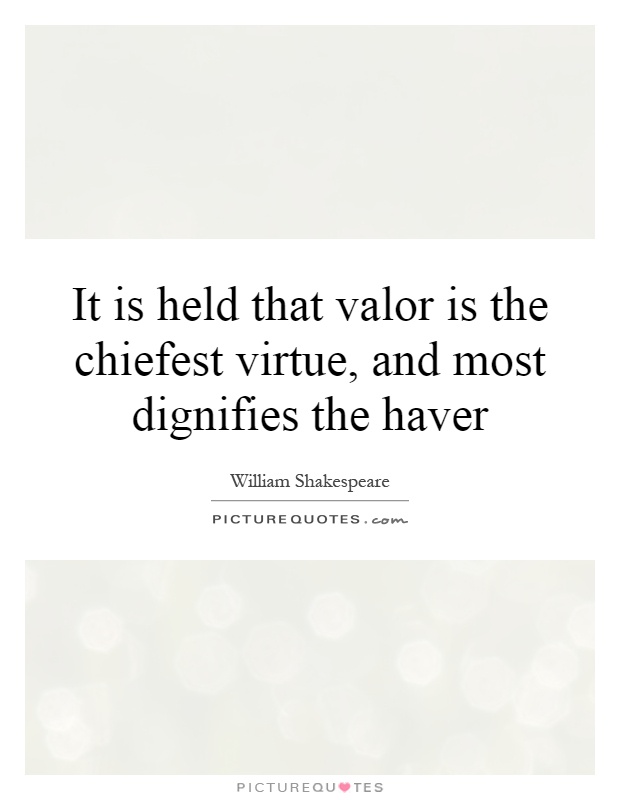It is held that valor is the chiefest virtue, and most dignifies the haver

It is held that valor is the chiefest virtue, and most dignifies the haver
In the works of William Shakespeare, the theme of valor as the chiefest virtue is a recurring motif that is often explored through the actions and words of his characters. Valor, or courage in the face of danger, is portrayed as a noble and admirable quality that sets individuals apart and elevates them to a higher level of respect and honor.One of the most famous examples of valor in Shakespeare's plays is found in the character of Macbeth. Despite his tragic downfall, Macbeth is initially portrayed as a brave and fearless warrior who is willing to risk everything for power and glory. His valor on the battlefield is what ultimately leads him to become the king of Scotland, but it is also his downfall as his ambition and greed drive him to commit heinous acts in order to maintain his position.
In "Henry V", Shakespeare explores the theme of valor through the character of King Henry himself. Henry is depicted as a courageous and inspiring leader who rallies his troops to victory against overwhelming odds. His valor in battle is what earns him the respect and admiration of his men, and ultimately leads to his triumph over the French at the Battle of Agincourt.












 Friendship Quotes
Friendship Quotes Love Quotes
Love Quotes Life Quotes
Life Quotes Funny Quotes
Funny Quotes Motivational Quotes
Motivational Quotes Inspirational Quotes
Inspirational Quotes